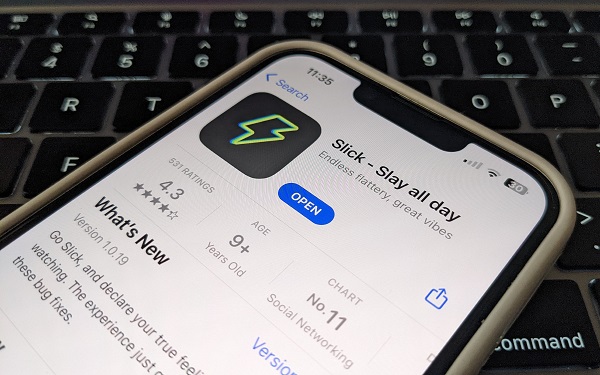
Emerging Indian social media app Slick left an internal database containing users’ personal information, including data of school-going children, publicly exposed to the internet for months.
Since at least December 11, a database containing full names, mobile numbers, dates of birth, and profile pictures of Slick users was left online without a password.
Bengaluru-based Slick launched in November 2022 by former Unacademy executive Archit Nanda after pivoting from crypto and closing his earlier startup CoinMint. His latest venture, Slick, is available on both Android and iOS and works similarly to Gas, a compliments-based app that is popular in the United States. The app also allows school and college students to talk with and about their friends anonymously.
Security researcher Anurag Sen from CloudDefense.ai found the exposed database, and asked TechCrunch for help in reporting the incident to the social media startup. Slick secured the database a short time after TechCrunch reached out on Friday.
Due to a misconfiguration, anyone familiar with the database’s IP address could access the database, which contained entries of over 153,000 users at the time it was secured. TechCrunch also found that the database could be accessed by an easy-to-guess subdomain on Slick’s main website.
The researcher also informed the India’s computer emergency response team, known as CERT-In, the country’s lead agency for handling cybersecurity issues.
Nanda confirmed to TechCrunch that Slick fixed the exposure. It’s not known if anyone other than Sen found the database before it was secured.
Slick attracted many younger users in India shortly after debuting last year. Earlier this month, Nanda took to Twitter to announce that the app crossed 100,000 downloads.
Small and medium businesses have become a growing target for malicious online hackers in recent years, currently accounting for between 43% and 61% of all security breaches and some $7 billion annually in related losses, according to different estimates. Today, a startup called Guardz is emerging from stealth with a two-part offering aimed at protecting them: a SaaS-based set of low-code […]
A New York-based spyware maker has agreed to notify the individuals whose phones were compromised by its mobile surveillance software, following a deal with the New York attorney general’s office announced Thursday. Under the agreement, Patrick Hinchy, whose 16 companies promoted apps like PhoneSpector and Highster, will also pay $410,000 in civil penalties for illegally […]
A bug in a new centralized system that Meta created for users to manage their logins for Facebook and Instagram could have allowed malicious hackers to switch off an account’s two-factor protections just by knowing their phone number. Gtm Mänôz, a security researcher from Nepal, realized that Meta did not set up a limit of attempts when […]
Leave a Reply